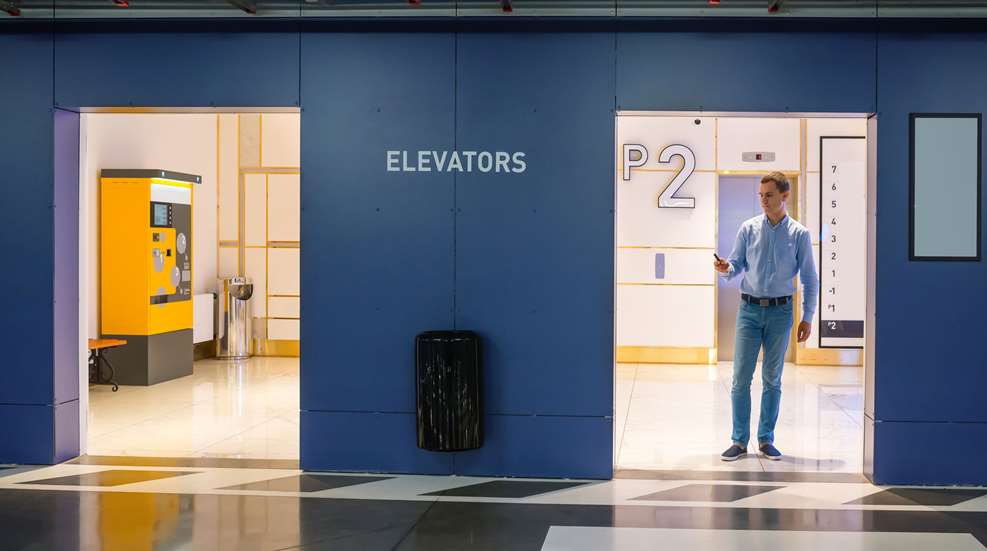
We talk a lot about situational awareness and the color-code system, and for good reason: They are important tools in helping you avoid scenarios that could turn dangerous. Getting out of a situation before things really go sideways is the best possible self-defense option and keeps you from having to resort to your concealed-carry firearm.
Keeping yourself in a constant state of Condition Yellow in public isn’t always easy, though. It doesn’t come naturally to most of us, and it might feel like a lot of work. It’s easy to start in Condition Yellow but gradually drift off into Condition White as you go about whatever you’re doing, lapsing into obliviousness. The good news is that situational awareness is a muscle you can train. You can get better at it by actively practicing it, and one simple way to do so is by deliberately thinking like a criminal.
As you go about your day, try to look at every person, place and situation from the perspective of a predator. This is a little uncomfortable because, of course, you’re not a predator. You’re not used to looking at people as objects and considering the landscape based on how you can use it for nefarious purposes. But give it a shot.
Let’s start with your morning jog through the neighborhood. As you pass the houses on your street, examine each one, and think: If you were a burglar or a home invader, which one of these houses would you pick as your target? Which one looks like it would be the easiest to break into during the day? How about at night? Which one looks like you’d be better off to leave it alone?
Now, why did you pick the house you did? Are the doors and windows arranged in such a way that it seems they would be easy to access out of view of the neighbors? Is the garage or the gate left wide open? Is there a barking dog or some prickly bushes that would make you pass on a specific house? File all of this information away—you can use it to make your own home less attractive to a burglar. You can even go home and look at your house from a burglar’s perspective. If you had to break into this home, how would you do it? What’s the weakest access point and why? Now strengthen or reinforce that weak spot.
Next up, on your walk to work or into town, observe the layout of the landscape and buildings. If you were a predator looking to assault, rob or grab someone, where would you hide for the best ambush spot? Where could you remain hidden until you wanted to be seen? Where could you easily snatch someone up and immediately shove them out of sight, perhaps into an alley or abandoned building? Where is it normal for someone to be lingering (at the bus stop, leaning against a tree checking their phone) and where is it not normal for someone to be standing around (loitering in a parking lot)? Now that you have this information, you can better avoid those likely ambush spots and pay better attention if you have to go near them.
How about in the mall parking lot? Take a look around as you walk in or out. Which of these cars would you break into if you were looking to steal a vehicle quickly without being seen? Why? What about the vehicle and where/how it is parked makes you think it’d be the easiest to hit? Is someone sitting in it fiddling with the radio, door hanging open to let the hot air out, as they pay absolutely no attention to who is around them? Is one car parked in a dark corner that would make it easier to break into unseen?
What about if you wanted to kidnap or rob someone—which of these shoppers leaving the mall looks like the easiest, most fruitful target? Why? You instinctively know the answers, but take time to articulate them. You’d probably choose to victimize that woman in high heels and a ponytail whose face is buried in her phone and whose other hand is full of bags. You’d likely avoid the woman who is watching where she’s going, scanning left and right as she walks to her car, and who has her purse clamped tight against her side with her elbow. And you already know the takeaway: Be the second lady, not the first one.
The examples are endless, and you can practice this “think like a criminal” exercise almost anywhere. When you put yourself in a predator’s shoes, you gain two benefits. First, you help flex your situational awareness muscle and make Condition Yellow feel more natural and intuitive. It will help you keep your personal safety in the forefront of your mind. Second, when you think like a predator, it becomes much easier to spot your own vulnerabilities, because you’ve just spent time picking out everyone else’s.















































